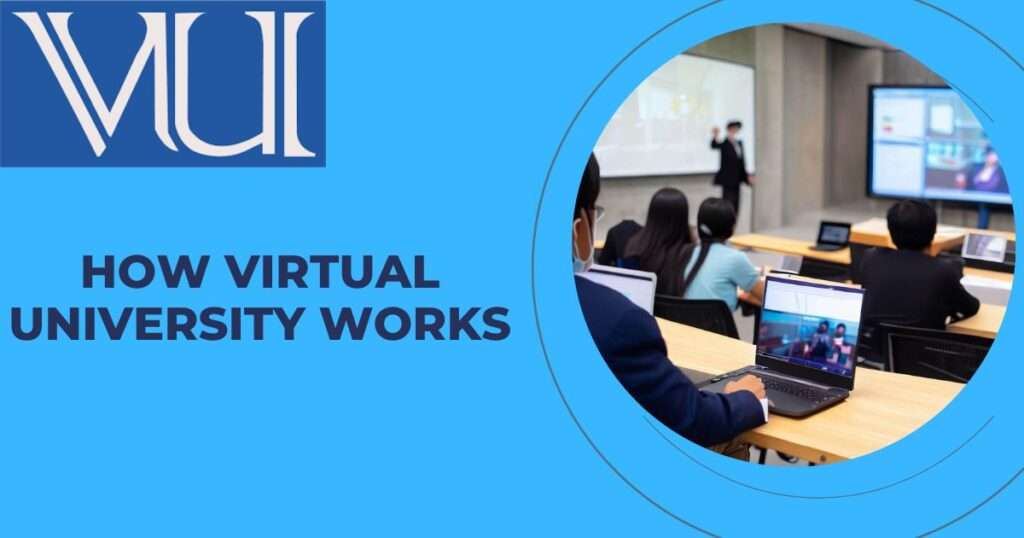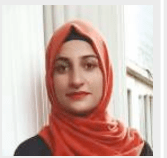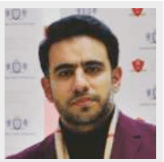
The Virtual University of Pakistan was established by the government of Pakistan in 2002. Since 2002, the virtual university of Pakistan has been providing excellent education in response to the growing need for quality education in Pakistan. With a vision to become a center of excellence in distance learning, the university was opened to provide an alternative to traditional brick-and-mortar institutions, which are often limited in their capacity to serve students from all parts of the country and are a high fee structure.
I. Importance of Online Education
Online education has become increasingly important in recent years, and its significance has been further magnified by the global COVID-19 pandemic. Online education allows students to continue their education without interruption during times when physical classrooms are not accessible. It ensures that learning can take place regardless of geographical limitations or lockdown measures.
Online education has the potential to reach a wider audience, including those who may face barriers to traditional education, such as individuals with disabilities or those living in remote areas. It promotes inclusivity by providing equal learning opportunities.
II. Learning Platform of Virtual University
The Virtual University has the following learning platforms
The university uses a special computer program that is called a Learning Management System (LMS). This program is designed specifically for the university and helps students and teachers connect with each other. It works like a central hub where students can find their course materials, join discussions, hand in assignments, take online quizzes, and talk to their teachers and classmates. The LMS is designed to be easy to use, just like popular apps such as Facebook and WhatsApp.
With the LMS, students can easily download books and other learning materials. They can also watch recorded video lectures that are available on the LMS. The LMS makes sure that the online learning experience is well-organized and structured, so students can easily navigate through their courses and find what they need.
The Virtual University of Pakistan uses YouTube as another tool to provide education to its students. They have uploaded recorded lectures for all subjects on their YouTube channel. This means that students can easily access these lectures and watch them whenever they want, according to their own schedule. They also have the option to download the lectures for offline viewing. By using YouTube, the Virtual University ensures that students have a flexible and convenient way to access educational content, allowing them to learn at their own pace and convenience.
C. Satellite TV Channels
The Virtual University of Pakistan has its own television channels on satellite called VTV1, VTV2, VTV3, and VTV4. These channels are freely accessible for anyone to watch. The university broadcasts its lectures on these channels according to a specific schedule. The lectures are aired at designated times and are repeated throughout the day, allowing students to watch them at their convenience.
This broadcasting method ensures that students have multiple opportunities to access the lectures. If a student is unable to watch a lecture at its original airing time, they can catch it during one of the repeat broadcasts. This flexibility allows students to tailor their learning experience to their available schedules, making it easier for them to manage their studies alongside other commitments.
By owning and operating these TV channels, the Virtual University of Pakistan provides an additional avenue for students to access their educational content, reaching a wider audience and catering to different learning preferences.
D. Open courseware
In 2010, the Virtual University of Pakistan became a member of the Open Courseware Consortium (OCWC). As part of their membership, the university had a commitment to release ten courses under a Creative Commons license within the following three years. In response to this obligation, the VU Open Courseware website was swiftly created.
The VU Open Courseware website was designed to provide easy access to educational resources. It included all the courses offered by the university, along with the corresponding reading materials and assessment tasks. These resources were made available on the OCW site, allowing students to access them for free.
The university went above and beyond the initial commitment and published over 130 three-credit undergraduate and graduate-level courses under a Creative Commons license. This license enables users to freely use, share, and modify the materials, fostering a culture of open learning and collaboration.
In 2012, the VU Open Courseware website (https://ocw.vu.edu.pk/) was officially launched, providing a dedicated platform for students to access the courses and related subject materials. Students can visit this website and explore a wide range of educational resources, all without any cost. This initiative significantly expands the availability of educational content and allows students to supplement their learning with additional resources beyond their enrolled courses.
E. Virtual University Campuses
The Virtual University of Pakistan (VUP) has made significant efforts to ensure accessibility and convenience for its students by establishing 200 campuses across the country. These campuses are in every city and tehsil (administrative subdivisions) of Pakistan, that is covering a wide geographic area. The purpose of these campuses is to provide support and facilities for students enrolled in the virtual university’s programs.
1. These Campuses are Virtual University Exam Centers
Each of these campuses is equipped with designated VU exam centers and study centers. These study centers provide a physical space for students to study, collaborate, and access resources. These campuses offer facilities to students, such as computer labs and internet access to facilitate students’ educational needs.
2. Liable to Provide Infrastructure to Students
These campuses provide the opportunity for students to join online virtual Zoom classes. This allows them to engage in live, interactive sessions with their instructors and peers, fostering a sense of community and enhancing the learning experience. Students also have the option to join student groups focused on their chosen subjects, promoting collaboration and knowledge sharing among peers.
3.Training the new students
To assist newly admitted students in adapting to the virtual learning environment, these campuses organize orientation classes. These sessions guide students on how to navigate and succeed in their studies at Virtual University. This support ensures that students have the necessary knowledge and resources to make the most of their educational journey.
4. Play a Bridge Role between Students and University
These campuses play a vital role as a bridge between the students and the university. They provide physical infrastructure, support services, and guidance to ensure that students have a seamless learning experience and can access the necessary resources to excel in their studies.
III. Key Features of the Virtual University of Pakistan
The Virtual University of Pakistan is a well-known university that provides students all around Pakistan with online education and learning possibilities. Here are some of the important aspects of Pakistan’s Virtual University.
1. Accredited Degree Programs
The Virtual University offers a wide range of degree programs at the undergraduate, graduate, and postgraduate levels. These programs are fully recognized by the Higher Education Commission (HEC) of Pakistan. This is ensuring the credibility of VU and acceptance of its degree value in the job market, as it has accepted the degrees of traditional universities in Pakistan.
2. Experienced Faculty
The university has a team of experienced and qualified faculty members Who are experts in their respective fields. Throughout their academic careers, these instructors provide students with guidance, support, and feedback.
3. Online Learning Platforms Available 24/7
Virtual university online learning tools are available 24/7, and students can access all learning tools at any time, such as a Virtual Learning management system LMS, VU YouTube channel that contains all video lectures, Open courseware, and VU’s own four TV channels (VTV1…VTV4) that all students can access anytime and anywhere in Pakistan and abroad.
4. Flexible Study Schedule
Pakistan’s virtual university allows students to learn at their own pace and on their own time. This is especially useful for students who work full-time or have other social and familial responsibilities that prevent them from attending traditional classes.
5. Economic Fee Structure
Tuition and admittance fees at the virtual university are much lower than those at traditional universities and Allama Iqbal University. The average semester fee for BS students is Rs. 17,000, which they divide into five or six installments. This enables students to obtain a high-quality education at a fraction of the expense.
6. Customization of exam
Suppose a student is doing the job and with his job, he/she can study easily with the job, and the student makes their own date sheet at their own ability of time, date, and place. The student makes their own date sheets for the exam, if a student lives in Pakistan and suddenly moves abroad then he can follow the same procedure and carry on his study as he was following in Pakistan.
7. Interactive Online Lectures
The Virtual University provides online lectures via video-based tutorials that are meant to interest students and support effective learning. These lectures are presented by experienced faculty members and cover the course’s main concepts and subjects.
8. Digital Resources
The university gives its students access to digital resources, which include e-books in pdf format. The institution distributes these e-books to students each semester, and students can easily download them on their devices for free. The VU provides students with an Open courseware library. They can get knowledge outside of their topics by accessing information outside of their subjects.
9. Assessment and Evaluation
To measure students’ learning progress, Virtual University uses a fair and transparent assessment system. It consists of online quizzes, assignments, graded discussion boards, and midterm and final exams administered at VU test centers. This guarantees that students’ knowledge and comprehension of course material are correctly assessed.
10. Student Support System
The VU provides comprehensive student assistance programs to help students succeed academically. This includes academic counseling with teachers, course selection advice, technical help, and access to the registrar and finance departments. With a single click, this assistance system facilitates engagement and collaboration between students and the university.
The institution provides comprehensive student assistance programs to help students succeed academically. This includes academic counseling with teachers, course selection advice, technical help, access to the registrar and finance departments. With a single click, this assistance system facilitates engagement and collaboration between students and the university.
12. TV channels
The university broadcasts live lectures on its four television stations (VTV1…VTV4).
13. FM radio channel
The institution maintains an FM radio channel to communicate with and assist its students.
The virtual university provides several scholarships to students. This includes the merit-based scholarship for exceptional pupils. Need-based scholarships for eligible students, as well as scholarships for the children of Shuda, Syeda Mubarika Begum VU students can apply for a scholarship.
15. Discount for DIsabled Students
Disabled students are eligible for a fee waiver of 50%.
16. Personalized Learning
Students can tailor their learning experience to their specific needs and interests.
17. Repeated Access to Course Materials
Whereas traditional lecturing leaves you at the whim of your finest note-taking skills, video lectures can be watched and revisited as needed. If a student does not comprehend part of the topics provided in a video lecture, they can listen to it again. Students can use lecture videos as a supplement to help them complete homework.
18. Improved technology skills
Whereas traditional lecturing leaves you at the whim of your finest note-taking skills, video lectures can be watched and revisited as needed. If a student does not comprehend part of the topics provided in a video lecture, they can listen to it again. Students can use lecture videos as a supplement to help them complete homework.
19. VU Own Software House
Whereas traditional lecturing leaves you at the whim of your finest note-taking skills, video lectures can be watched and revisited as needed. If a student does not comprehend part of the topics provided in a video lecture, they can listen to it again. Students can use lecture videos as a supplement to help them complete homework.
The Virtual University of Pakistan is an educational institution that offers online degree programs. It has been recognized by the Higher Education Commission (HEC) of Pakistan as a degree-awarding institution. The HEC is a regulatory body responsible for ensuring the quality and standards of higher education in Pakistan.
1. Curriculum Designed as per HEC
The recognition by HEC means that the Virtual University of Pakistan meets all the set standards and criteria established by the HEC for degree-granting institutions. This includes factors such as faculty qualifications, infrastructure, teaching methods, and curriculum development. The virtual university’s curriculum has been designed in accordance with the guidelines and curricula prescribed by the HEC.
2. Compare Degree Value with Conventional Institute
One important aspect of the HEC recognition is that the degree awarded by the Virtual University holds the same value as a degree earned from a conventional university. This implies that the qualifications and academic achievements of students from the Virtual University are considered equivalent to those from traditional universities in Pakistan.
3. Credit hours transfer/migration policy
Furthermore, the HEC has implemented policies to facilitate the mobility of students between universities. As per these policies, students enrolled at the Virtual University can transfer their credit hours to other universities to complete their degrees. This provision allows Virtual University students to switch to a conventional university if they desire or need to do so, without losing their academic progress. Similarly, students from other universities can also apply to transfer their credit hours to Virtual University courses.
V. Success Stories of Virtual University Graduates
Mansoor Ali Khan
Study Program: M.Sc. Mass Communication
Batch: Fall 2018 – Spring 2020
I made the decision to enroll in Virtual University for my master’s in media education in order to reconcile my demanding professional life and higher education. I discovered VU’s program to be incredibly advanced when compared to other institutions because I had more than 15 years of experience working as an anchor in the media industry.

Muhammad Usama Baig
Study Program: BS Software Engineering
Batch: Fall 2014 – Spring 2018
At a reputable software company in Lahore, I work as a Senior Software Engineer. I graduated from VU with a BS in software engineering. I was able to pursue internships and employment in addition to my studies at VU because of the university’s high caliber lectures and the freedom to study at my own speed and convenience. Both my schooling and job benefited significantly from this. Taking into account my own experiences, I heartily advise other students to attend VU.

Iram Ghafoor
Study Program: M.Sc. Mass Communication
Batch: Spring 2017 – Fall 2018
I earned a distinction after successfully completing my master’s in mass communication at VU. I received 100% merit-based scholarships from VU throughout my academic career, which came in very handy when I wasn’t able to support myself. The biggest influence VU had on me, though, was getting me online and inspiring me to start freelancing. I would still be having financial problems if VU didn’t exist. In addition to assisting me in completing my degree, VU gave me invaluable exposure to the digital world, which enabled me to make a name for myself in the freelancing sector. In both my academic and professional endeavors, it has unquestionably been a blessing.

Ahmad Awais
Study Program: BS Business Admin
Batch: Fall 2003 – Fall 2009
I graduated from VU with a BBA (Hons) degree. I then pursued a master’s degree in international human resource management at the University of Bedfordshire, and most recently, I finished a doctorate in business administration at the University of the West of Scotland (UK). I’m currently employed with the London School of Science and Technology, the largest college system in the UK, as a business lecturer. I oversee dissertations for Level 6 students and conduct modules in addition to teaching. I got the chance to take part in three consecutive work placements while earning my master’s degree at the university, where I won the top performer award.

Dr. Shahid Minhas
Study Program: BS Mass Communication
Batch: Fall 2004 – Spring 2008
I received a Bachelor’s in Mass Communication from the Virtual University of Pakistan in 2008. I am currently the department head for mass communication at GIFT University. I had a good experience with VU’s educational system, which I found to be supportive and enlightening. For students, the university’s TV channels were extremely useful. VU is proud to have been Pakistan’s first university to offer virtual learning and a learning management system (LMS). Affordably priced, top-notch education is now available at your door thanks to this innovative strategy.

VI. Frequently Asked Questions (FAQs)
1. What is the concept of Virtual University?
The basic mode of study at virtual university is online through video lectures and the Internet. The students can customize their study at their own ease and available time.
2. How long is VU semester?
The virtual University has an 18-week-long semester for teaching and examinations.
3. Is there any entry test at Virtual University?
Yes, there is an entry test system at Virtual Universities for Life science programs, but most of the programs have an open merit system as per HEC’s admission eligibility criteria.
4. Is virtual University recognized globally?
Yes, Virtual University is recognized globally, because it has been recognized by HEC and it is a public sector university, not a private university.
5. What is the minimum attendance at VU?
There is no attendance issue at the virtual university because the basic mode of study at virtual university is online and, in this regard, attendance is no problem.
